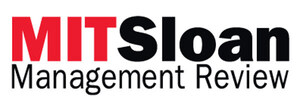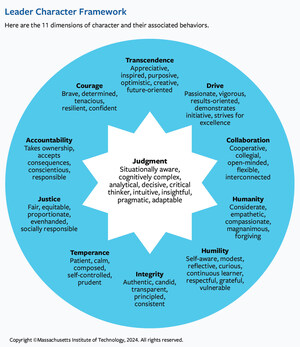CAMBRIDGE, Mass., May 21, 2019 /PRNewswire/ -- Research shows that companies can successfully achieve digital transformation without sacrificing their core values or exposing themselves to the less desirable elements of Silicon Valley startups. In their new article "Building Digital-Ready Culture in Traditional Organizations" (MIT Sloan Management Review), MIT Sloan School of Management's George Westerman and Deborah L. Soule and Microsoft corporate vice president Anand Eswaran argue that traditional businesses and legacy companies are at a pivotal moment—one that demands agility, innovation, and most important, a large culture shift. The authors provide a framework that helps corporate leaders navigate that shift and embrace the most useful aspects of digital culture in a way that won't alienate their best employees or wreck best practices.
"Developing a digital-ready culture does not mean doing away with all that is good in a traditional company's culture. Instead, it's a matter of communicating the desired values and then introducing some new practices while fine-tuning others," the authors write.
The authors draw on a survey of executives and senior employees in more than 500 digital and in-transition companies, dozens of interviews, an extensive review of management literature, and numerous company cases to identify the four key values of digital culture: impact, speed, openness, and autonomy. They write that organizations hoping to achieve digital transformation must adopt or refine a set of digital-ready practices grounded in these values, which will shape employee actions and organizational performance.
The authors emphasize that some traditional values — for instance, integrity and stability — are to be prized. They hold up Silicon Valley giants Amazon and Google as cases in point. Having experienced fallout from their high-pressure, inflexible work environments in their early days, these born-digital companies are now striving to build more balanced and inclusive cultures.
"Striving for integrity and stability in a company's culture does not hurt self-reported measures of innovation, profitability, and customer satisfaction," they write. "That's good news for traditional companies, maturing digital companies, and millennial workers who now care as much about growing families and communities as they do about growing businesses."
Instead of ditching all past practices, traditional companies should try to create a digital culture that also retains the best of their legacy. The authors highlight three principles for making this happen:
- Build the practices that set digital companies apart. Traditional businesses must try to cultivate habits of rapid experimentation and self-organization within a framework of data-driven decision-making, even though these practices may feel alien to companies whose structures, values, and governance rules were designed for cautious stability.
- Preserve practices that promote integrity and stability. Companies managing for integrity and stability report performance that is neither better nor worse than that of companies that do not. Yet the negative outcomes of omitting these practices have become apparent in many digital-native companies.
- Reorient important practices that are still optimized for the pre-digital world. The speed and interconnectedness of the digital world demands a new orientation to customers, results, and rules. Wherever possible, strict rules and controls must give way to broader guidelines and transparent monitoring.
The authors acknowledge that changing cultures is never easy and can be overwhelming. They identify steps for leaders to begin to grow strong cultural roots for a digital transformation, including:
- Reframe the vision around radical impact to instill a sense of purpose.
- Visibly promote new values and practices — and walk the walk.
- Be selective in choosing where to start.
- Give people the chance to make an impact through manageable but meaningful contributions.
- Look to IT (where possible) for models of rapid experimentation and self-organizing.
By adopting this framework for navigating digital transformation while maintaining integrity, stability, core values, and best practices, traditional companies can remain competitive and thrive in the marketplace.
"Digital entrants are fast, but they rarely have the size and entrenched power of traditional companies," the authors write. "Combining a traditional company's assets and competencies with a digital-ready culture can be a winning formula for competing with fast-moving digital entrants in any industry."
To read the full article, please visit: MIT Sloan Management Review.
About the authors:
George Westerman (@gwesterman) is a senior lecturer at the MIT Sloan School of Management and faculty director of workforce learning at MIT's Abdul Latif Jameel World Education Lab. Deborah L. Soule is a research consultant at the MIT Sloan School of Management. Anand Eswaran is corporate vice president, enterprise, at Microsoft Corp.
About MIT Sloan Management Review
A media company based at the MIT Sloan School of Management, MIT Sloan Management Review's mission is to lead the conversation among research scholars, business executives, and other thought leaders about advances in management practice, especially those shaped by technology, that are transforming how people lead and innovate. MIT Sloan Management Review captures for thoughtful managers the creativity, excitement, and opportunity generated by rapid organizational, technological, and societal change.
Contact
Emily Lavelle
Emily Lavelle Communications
+1-212-390-1328
[email protected]
SOURCE MIT Sloan Management Review

Related Links
WANT YOUR COMPANY'S NEWS FEATURED ON PRNEWSWIRE.COM?
Newsrooms &
Influencers
Digital Media
Outlets
Journalists
Opted In





Share this article